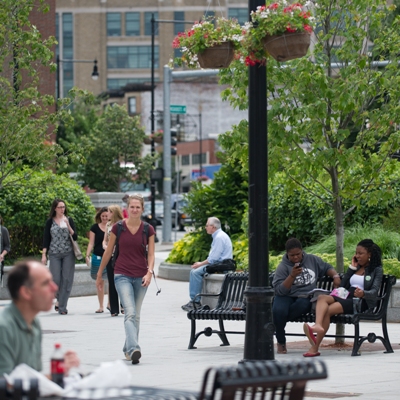
Urban Heat Island Effect 2015

The “urban heat island” effect (UHI) describes the phenomenon of a region, a city or an area within a city being significantly warmer than its surroundings. UHI is the result of several factors, most notably a lack of tree cover, and extensive paved surfaces and dark roofs. On average, the difference in daytime surface temperatures between developed and rural areas is 18 to 27 °F (10 to 15°C). There are several negative impacts of UHI. Higher temperatures result in additional air conditioning load on buildings, increasing energy use and creating additional waste heat that adds to the UHI effect. Higher temperatures also present a range of public health risks from heat stress and temperature-related degradation of air quality (e.g., greater ozone formation at higher temperatures) which are particularly relevant for the elderly, the young, and people with compromised health. Warmer temperatures induced by climate change will exacerbate the UHI effect and increase the impacts of UHI. The City of Cambridge seeks innovative, realistic, actionable, and location-based strategies to mitigate UHI. Effective policies, programs, incentives, and/or regulatory ideas should be specific and measurable.